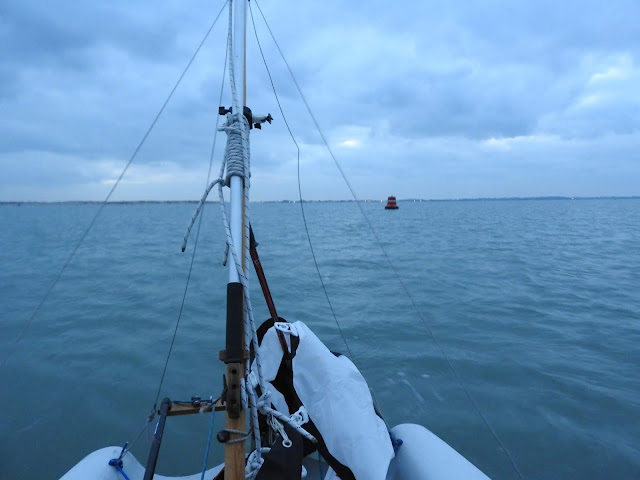Tony and I setting off at Reading Regatta, our boat on the right with Tony at stroke.
(From Ronnie Howard's book - Knowing Rowing)
(From Ronnie Howard's book - Knowing Rowing)
I remember he rued the fact when we lost; he would say in an Eeyore fashion: 'nobody remembers it when you come second.' But they have, Tony and eventually you came first.
At the end of this year I reflect on the passing of the seasons. I was looking through the old blog of another fallen friend, Ivor Reveley, who encouraged me to row on several of the voyages recorded here. As well as many other things, Ivor was a poet, and had posted on his blog an elegiac poem about long distance country running in the Autumn and the call of the trail. I hope I will be forgiven for shamelessly stealing his style and writing a poem about the call of the sea when rowing in midwinter:
On contemplating sea rowing in the winter
A distant sea is calling,
Lit by a winter's glow.
Lit by a winter's glow.
At the coast the sun has risen,
And a voice is calling:
And a voice is calling:
“It is time for you to row.”
The storm is over,
The waves are calmed,
Blessed by the winter's glow.
The waves are calmed,
Blessed by the winter's glow.
Among proud cliffs and slow sea mists,
A voice is calling:
A voice is calling:
“It is time for you to row.”
I must have heard that voice,
As I wondered when to row.
As I wondered when to row.
The voice now calling from the sea,
And saying: “It was time for you to go.”
And saying: “It was time for you to go.”
After writing this I read from a poem by Alfred Lord Tennyson, written when on Blackdown, the highest point on the North Downs, looking over the Sussex Weald to the distant sea.
You came, and look'd and loved the view
Long known and loved by me.
Green Sussex fading into blue
With one grey glimpse of sea.
From the same viewpoint as used by Tennyson, signals were passed onto London concerning the approaching Spanish Armada in 1588.
Looking towards the sea from Blackdown - National Trust






